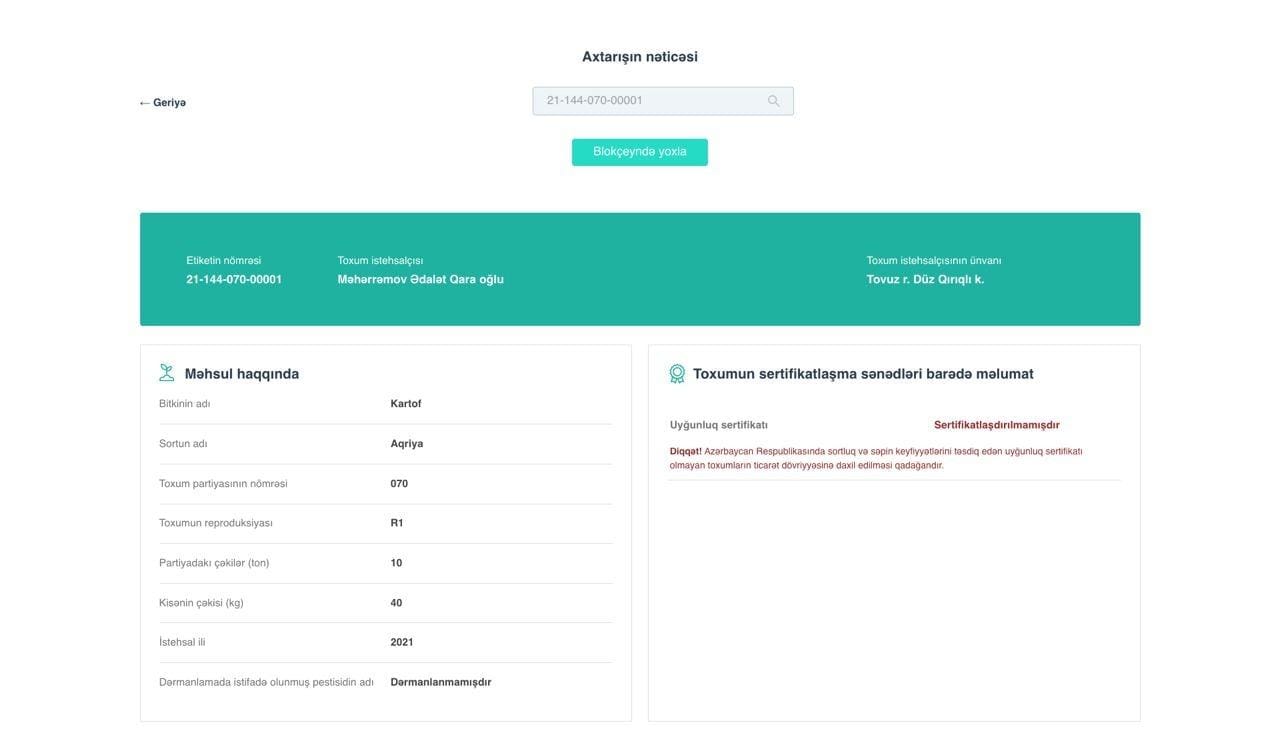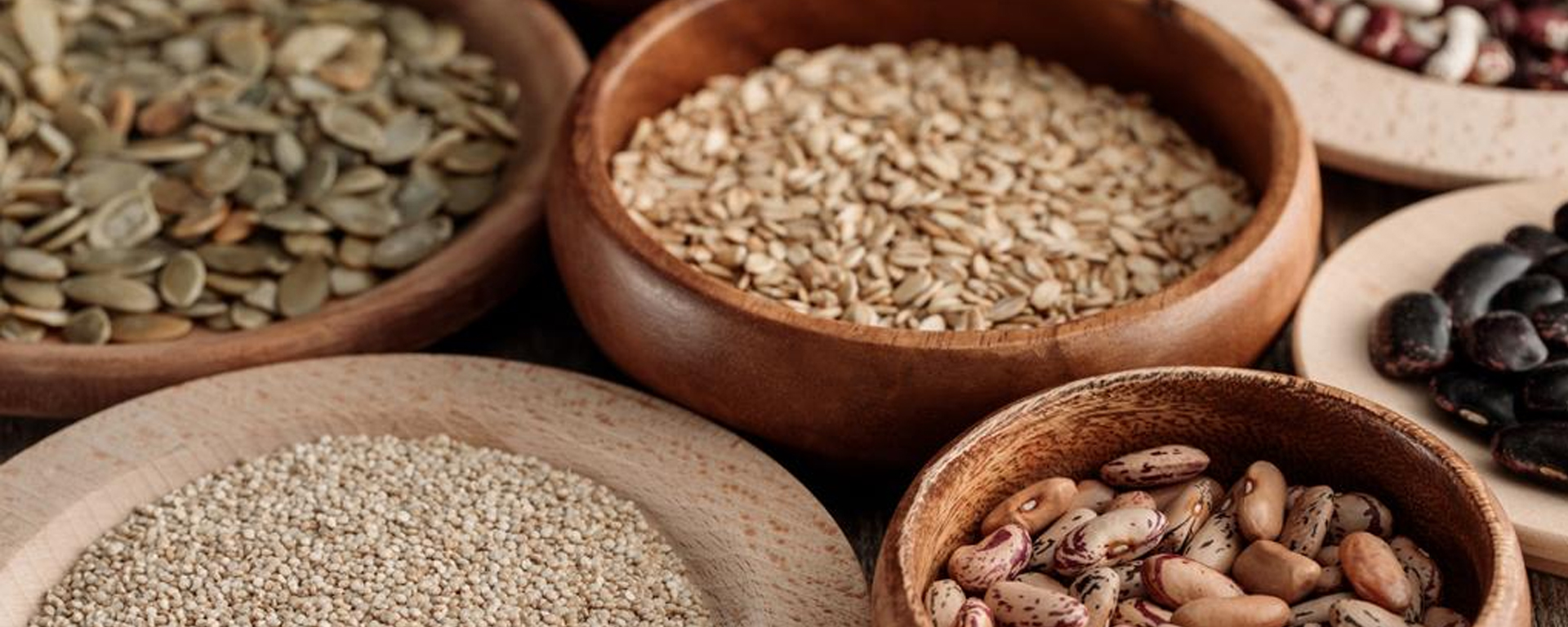Nearly 37 percent of Azerbaijan’s total workforce are involved in the agriculture sector, with the majority making a living from small-scale farms.
Introducing blockchain to support small farmers in Azerbaijan
June 9, 2022

The smallholders practise traditional farming methods, using surface irrigation and basing their planting and harvesting decisions on guesswork informed by previous experience. Unfortunately, these traditional farming methods produce lower crop yields, degrade the soil, reduce biodiversity, and impose an unsustainable strain on the region’s scarce water resources. These combined factors further make farmers especially vulnerable to the effects of climate change.
Over recent years, UNDP’s AgroBiodiversity programme has been introducing new technology, training courses, small grants and a mobile lab to raise awareness among farmers of more efficient ways to plant, irrigate, fertilise, harvest, store and sell their crops. This programme is being implemented in partnership with Azerbaijan’s Ministry of Agriculture and with funding from the Global Environment Facility.
As well as protecting the soil and environment, the application of these new technologies has helped to achieve a significant increase in productivity, resulting in savings on water bills and costs of pesticides and fertilisers, etc., as well as better quality products free of chemicals.
However, farmers still face major challenges selling their products on the market. This is partly because the prices they charge must cover the costs of complex transport routes, with numerous mediators and stakeholders involved in this process. In addition, there is a lack of trust of farmers among final consumers and a lack of quality assurance regarding logistics, fertilizers, storage conditions, and other aspects of production.
How can blockchain technology help small farmers?
At UNDP’s Accelerator Lab, we believe that combining blockchain with agricultural technologies could help significantly improve productivity, lift farmers out of poverty, and bolster the country’s food security.
We just helped establish a new platform based on blockchain technology to enable farmers to exercise control over the control of seed products.
This platform, which is soon to be integrated in the website of the State Agrarian Service Agency of Azerbaijan’s Ministry of Agriculture, will have the following benefits for users:
- It will issue e-labels for seed producers and provide opportunities to maintain a registry of the issued labels.
- It will provide an opportunity for seed-product batches certification.
- It will provide an opportunity for users to obtain data regarding features such as assortment purity.
- It will maintain and ensure regulation of data on current seed producers, the plant varieties they produce, and seed reproduction within a single database.
An initial test of the platform was conducted in 2021. Each packed seed bag from farmers was uniquely identified by a label including a QR code and a corresponding ID code. In this way the seed-testing process was made transparent and the stability of the composition of the seed bags was assured throughout. Information on certification for each labelled batch as entered into the system. A total of 135,252 tons of autumn crops and 6,761 tons of spring crops were labelled and certified.
As we move forward, we believe that this platform will help increase transparency in product routes, quality, storage and pricing and increase trust in agricultural products among consumers.
We believe that by using blockchain technology, this programme will further help pave the way for obtaining proof-of-concept and using this as basis to scale/develop potential new projects for improving traceability, food safety and agricultural insurance, as well as for introducing new business models to help smallholders overcome market barriers and attain better livelihoods from their labour.


 Locations
Locations